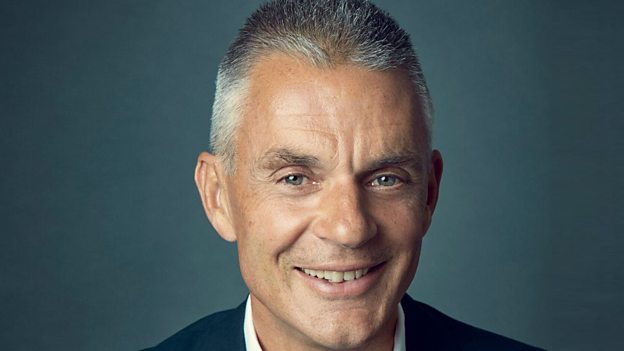
After more than 40 years of operation, DTVE is closing its doors and our website will no longer be updated daily. Thank you for all of your support.
BBC Studios head Tim Davie appointed new director general
 BBC Studios (BBCS) boss Tim Davie has been named director general of the BBC, replacing the outgoing Tony Hall.
BBC Studios (BBCS) boss Tim Davie has been named director general of the BBC, replacing the outgoing Tony Hall.
Hall took much of the UK industry by surprise in January when he revealed he would be exiting the BBC this summer, with chairman David Clementi working with headhunters to find a successor. Davie will take up the role on 1 September, having headed up commercial operations at BBCS and its predecessor BBC Worldwide (BBCWW) for more than seven years.
During that time, he has overseen the launch of production arm BBC Studios and its merger with former commercial division BBCWW, as well as content deals such as that struck with Discovery for natural history programming, the roll-out of streamer BritBox into the US and Australia, and last year’s deal to take full control of UKTV’s linear channels.
He was previously in the running to take the top job at the Premier League, but lost out to Discovery exec Sarah Dinnage and, following her u-turn, then rejected the role.
Davie also has experience of running the BBC, having been acting director general from November 2012 until April 2014, and before that was director of audio and music for the broadcaster. His experience as VP of marketing & franchise for PepsiCo Europe is also believed to stand him in good stead, as the broadcaster attempts to find new ways to monetise itself in the face of continuing budget cuts and pressure on its licensing model.
Clementi said: “Tim has a strong track record as the CEO of BBC Studios and is one of the most respected names in the industry. His leadership and experience, both outside the BBC and within, will ensure that we are well placed to meet the opportunities and challenges of the coming years. Tim has an enthusiasm and energy for reform, while holding dear to the core mission of the BBC.
“We know that the industry is undergoing unprecedented change and the organisation faces significant challenges as well as opportunities. I am confident that Tim is the right person to lead the BBC as it continues to reform and change.
“My focus for the remainder of my own term as chairman, until February of next year, will be to ensure that there is a smooth and successful handover and that the BBC continues to serve audiences across the whole of the UK.”
Davie added: “I am honoured to be appointed the BBC’s next director-general. This has been a critical time for the UK and these past few months have shown just how much the BBC matters to people. Our mission has never been more relevant, important or necessary. I have a deep commitment to content of the highest quality and impartiality.
“Looking forward, we will need to accelerate change so that we serve all our audiences in this fast-moving world. Much great work has been done, but we will continue to reform, make clear choices and stay relevant. I am very confident we can do this because of the amazing teams of people that work at the BBC.”
Hall described Davie as “a fantastic leader,” adding that “the BBC is in safe hands.”
Davie will take a pay cut in his new role, with a salary of £525,000 ($660,000) with no variable component. He was previously earning £600,000 a year at BBCS, although his new salary is an increase on the £450,000 paid to incumbent Hall. The BBC said the pay of the director-general had not been increased since 2012, with the new £525,000 figure the level that the salary would have been had inflation been applied.
Davie will be paid the same as Hall until August 2021, as all senior managers at the BBC are currently on a salary freeze.
BBC content chief among those to miss out
Davie beat three other frontrunners in the race, including BBC content chief Charlotte Moore.
She became director of content across the BBC in July 2016. She was the only woman among the leading four contenders and is responsible for BBC Television’s strategy, the ideas that are developed and all programmes that are commissioned for transmission on BBC One, BBC Two, BBC Four and on BBC iPlayer.
Moore was a driving force in enabling the BBC’s on demand service to offer shows for 12 months rather than 30 days, and was previously controller of TV channels and iPlayer, with a remit to ensure the broadcaster’s commissioning between linear channels and the streamer worked in a complimentary way, and before that headed up flagship BBC One.
She joined the BBC in 2006 as commissioning exec for documentaries, having worked at IWC Media.
Amazon’s UK chief Doug Gurr was also in the running, having headed up operations for the retail giant since 2016, having previously worked for the company in China. He previously worked at UK retailer Asda, joining Amazon in 2011.
Will Lewis, the former CEO of Wall Street Journal publisher Dow Jones, had also been a contender in the race, but was widely seen to have lost ground recently after being linked with the phone hacking scandal while working at News UK.
Other leading UK execs including Channel 4 CEO Alex Mahon, All3Media’s Jane Turton and Endemol Shine Group’s CEO Sophie Turner Laing were also reportedly approached during the recruitment process.




